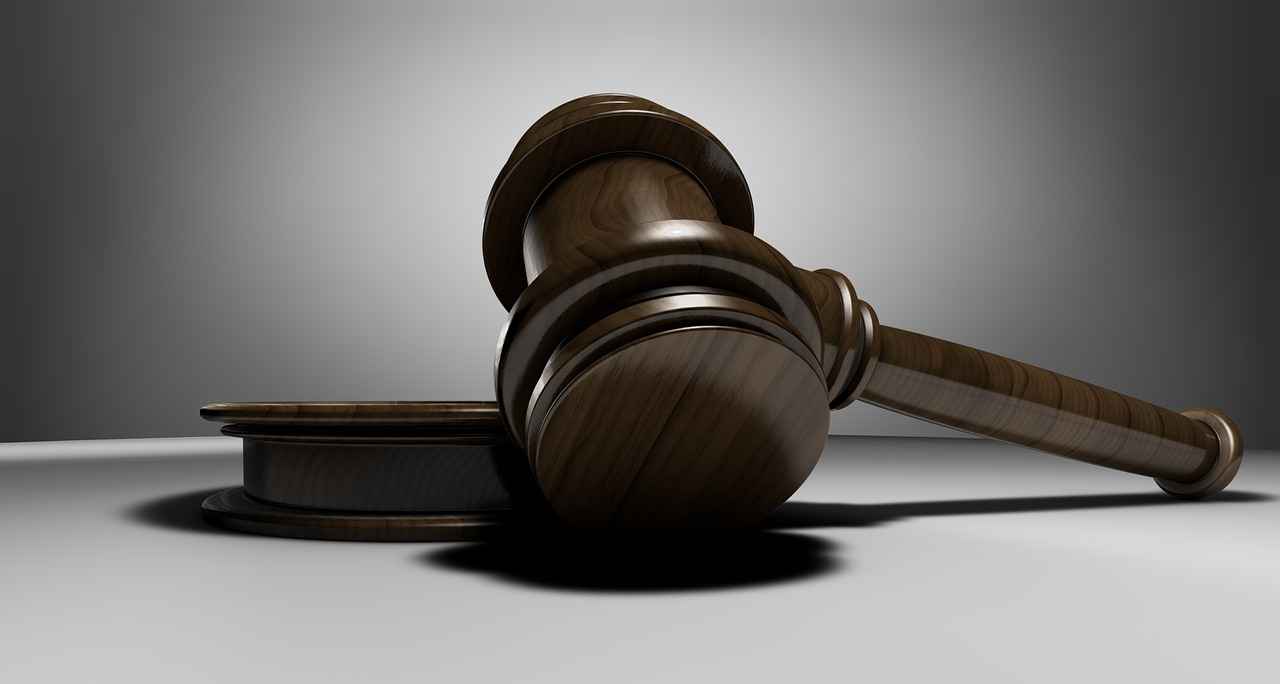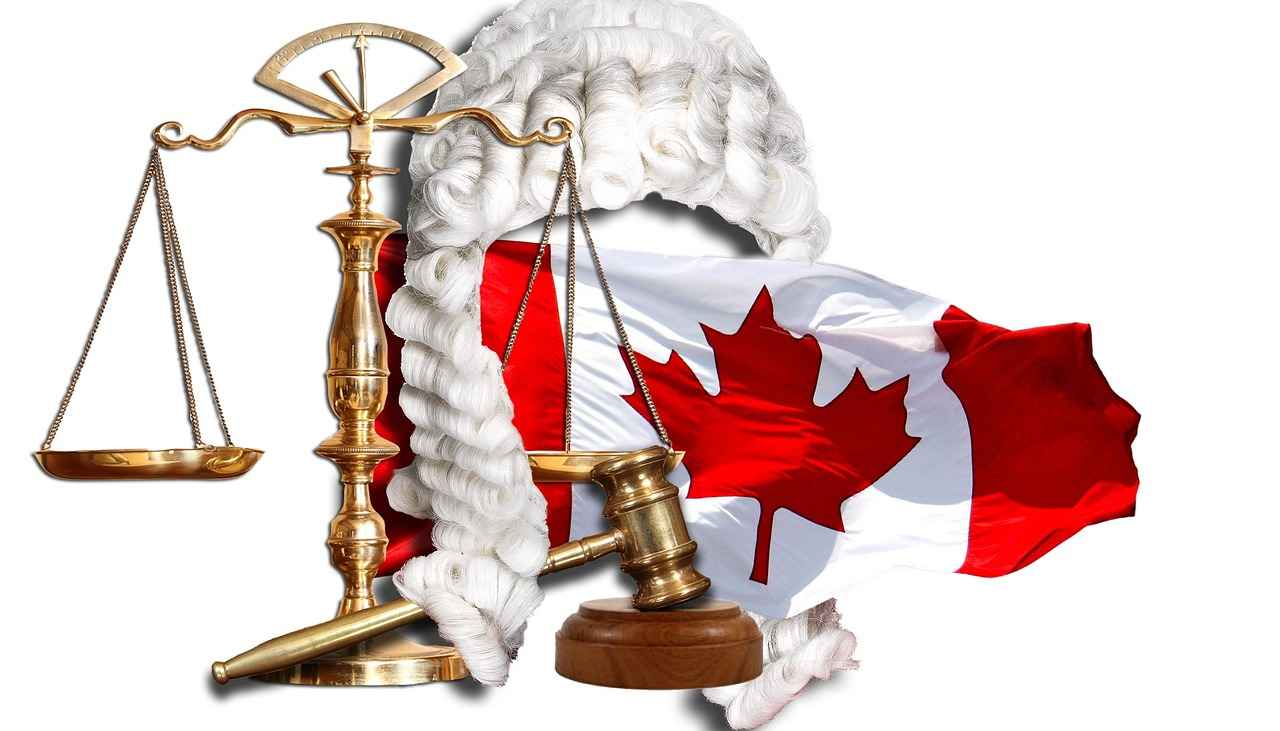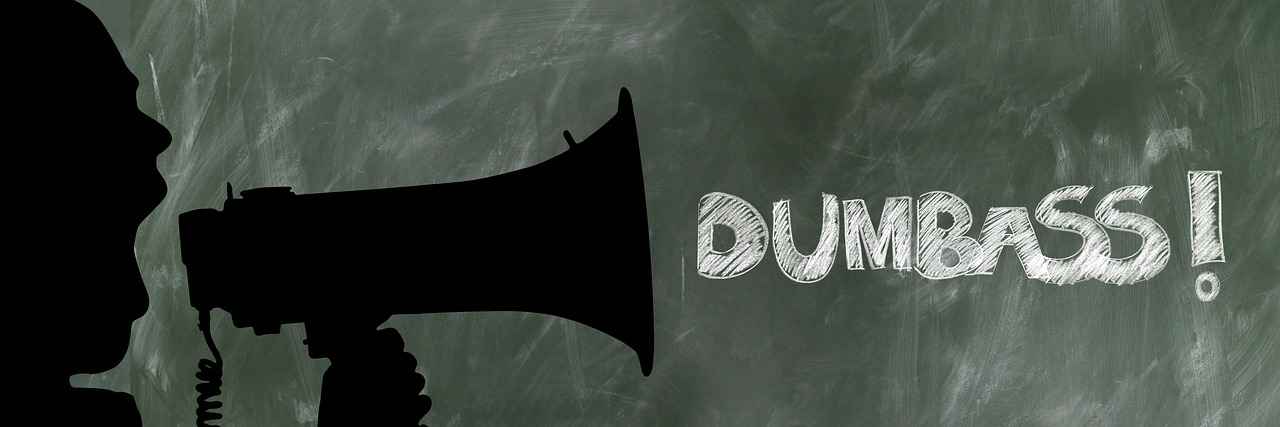This article provides a comprehensive guide on identifying qualified legal professionals in Lincoln, Nebraska, covering various legal case types and offering practical advice on the hiring process.
Finding the right legal representation can be a daunting task, especially in a busy legal landscape like Lincoln, Nebraska. With various case types ranging from personal injury to family law, understanding how to identify qualified attorneys is crucial. Below, we delve into the most common types of legal cases and offer practical advice on hiring the best lawyers.
Understanding Personal Injury Cases
Personal injury cases often stem from accidents that result in physical or emotional harm. When searching for a qualified attorney in this field, consider the following:
- Experience: Look for attorneys with a proven track record in personal injury cases.
- Referrals: Ask friends or family for recommendations to find trustworthy lawyers.
- Consultations: Take advantage of free consultations to gauge the attorney’s expertise and approach.
Medical Malpractice: Finding the Right Lawyer
Medical malpractice involves negligence by healthcare providers. To find the right attorney, focus on:
- Specialization: Seek lawyers who specialize in medical malpractice and have dealt with similar cases.
- Credentials: Check their educational background and any relevant certifications.
- Success Rate: Investigate their success rate in medical malpractice claims.
Breach of Contract: Legal Representation Matters
Breach of contract cases can be complex. When hiring an attorney, consider:
- Contract Law Expertise: Ensure the attorney has a strong background in contract law.
- Negotiation Skills: Look for lawyers who excel in negotiation, as many cases can be settled out of court.
- Client Reviews: Read reviews and testimonials from previous clients.
Property Disputes: Navigating Real Estate Law
Property disputes often involve significant financial stakes. To find a knowledgeable real estate attorney:
- Local Experience: Choose an attorney familiar with local real estate laws and regulations.
- Negotiation and Mediation Skills: Look for attorneys who can mediate disputes effectively.
- Track Record: Check their history of successful property dispute resolutions.
Landlord-Tenant Disputes: Seeking Legal Help
Landlord-tenant disputes can escalate quickly. When hiring an attorney, keep in mind:
- Housing Law Expertise: Ensure the attorney specializes in housing law.
- Understanding of Local Laws: Familiarity with local tenant rights and landlord obligations is crucial.
- Communication Skills: Choose an attorney who communicates clearly and effectively.
Defamation Cases: Protecting Your Reputation
Defamation, including libel and slander, can severely impact personal and professional lives. To protect your reputation:
- Expertise in Defamation Law: Hire an attorney with specific experience in defamation cases.
- Evidence Handling: Look for lawyers who understand how to gather and present evidence effectively.
- Reputation: Research their reputation in the legal community.
Employment Disputes: Knowing Your Rights
Employment disputes can arise from wrongful termination, discrimination, or harassment. When seeking legal representation:
- Specialization in Employment Law: Choose an attorney who specializes in employment law.
- Understanding of Employee Rights: Ensure they are well-versed in state and federal employment laws.
- Client Testimonials: Look for positive reviews from previous clients.
Product Liability: Holding Manufacturers Accountable
Product liability cases involve injuries caused by defective products. To find a qualified attorney:
- Experience in Consumer Protection: Look for attorneys who have handled similar cases.
- Knowledge of Industry Standards: They should understand the relevant safety standards and regulations.
- Track Record: Investigate their history of successful product liability claims.
Wrongful Death: Seeking Justice for Lost Loved Ones
Wrongful death cases require sensitive handling. When hiring an attorney:
- Compassion and Understanding: Choose an attorney who demonstrates empathy and understanding.
- Experience with Wrongful Death Laws: Ensure they have specific experience in wrongful death cases.
- Success Rate: Look into their history of successful outcomes in similar cases.
Class Action Lawsuits: Joining Forces for Justice
Class action lawsuits allow groups to sue collectively. To find a qualified attorney:
- Experience in Class Actions: Seek lawyers who have successfully managed class action lawsuits.
- Understanding of Collective Rights: They should be knowledgeable about collective legal rights.
- Client Reviews: Research their reputation and past client experiences.
Criminal Defense: Protecting Your Rights
Criminal charges can have severe consequences. When seeking a criminal defense attorney:
- Specialization in Criminal Law: Choose an attorney with a strong background in criminal defense.
- Trial Experience: Look for lawyers who have experience in court trials.
- Client Testimonials: Research reviews from previous clients to gauge their effectiveness.
Family Law: Navigating Divorce and Custody Issues
Family law encompasses divorce, child custody, and support issues. When hiring a family law attorney:
- Experience in Family Law: Ensure they specialize in family law matters.
- Negotiation Skills: Look for attorneys who can negotiate effectively on your behalf.
- Compassionate Approach: Choose a lawyer who is empathetic to your situation.
Bankruptcy: Finding a Qualified Bankruptcy Attorney
Bankruptcy can provide relief from overwhelming debt. To find a knowledgeable bankruptcy attorney:
- Specialization in Bankruptcy Law: Look for attorneys who specialize in bankruptcy cases.
- Understanding of Options: They should be able to explain various bankruptcy options clearly.
- Client Reviews: Research their reputation and past client experiences.

Understanding Personal Injury Cases
Understanding personal injury cases is essential for anyone who has been harmed due to the negligence of another party. These cases often arise from a variety of incidents, including car accidents, slips and falls, workplace injuries, and medical malpractice. The impact of such injuries can be profound, affecting not only the victim’s physical health but also their emotional well-being and financial stability.
To navigate the complexities of personal injury law, it is crucial to find a qualified attorney who specializes in this area. A skilled personal injury lawyer can significantly influence the outcome of your case by ensuring that you receive the compensation you deserve for medical expenses, lost wages, and pain and suffering.
When searching for a personal injury attorney, consider the following steps:
- Research Local Attorneys: Start by looking for personal injury lawyers in your area. Websites like Avvo and FindLaw provide directories of lawyers along with reviews and ratings.
- Check Qualifications: Look for attorneys who specialize in personal injury law and have a proven track record of successful cases. Verify their education, bar association membership, and any relevant certifications.
- Schedule Consultations: Many attorneys offer free initial consultations. Use this opportunity to discuss your case and assess the attorney’s communication style and approach.
- Evaluate Experience: Inquire about the attorney’s experience with cases similar to yours. An attorney who has handled cases involving similar injuries or accidents will have a better understanding of the legal landscape.
- Understand Fee Structures: Most personal injury attorneys work on a contingency fee basis, meaning they only get paid if you win your case. Make sure to clarify their fees and any additional costs upfront.
- Trust Your Instincts: Finally, choose an attorney you feel comfortable with. Trust and communication are vital in a successful attorney-client relationship.
By following these steps, you can find a qualified personal injury attorney who will advocate for your rights and help you navigate the complexities of your case. Remember, the right attorney can make all the difference in securing the compensation you need to recover and move forward with your life.

Medical Malpractice: Finding the Right Lawyer
Medical malpractice is a serious issue that arises when healthcare providers fail to meet the accepted standard of care, leading to harm or injury to patients. This area of law is particularly complex, as it requires a deep understanding of both medical practices and legal standards. When facing a medical malpractice case, it is essential to find the right lawyer who specializes in this niche to ensure that your rights are protected and that you receive the compensation you deserve.
First and foremost, look for an attorney with a proven track record in medical malpractice cases. This means they should have experience specifically in handling cases involving medical negligence, such as surgical errors, misdiagnosis, or improper treatment. A lawyer who is well-versed in these matters will be familiar with the intricacies of medical records and the legal standards that apply to healthcare providers.
When searching for a qualified medical malpractice attorney, consider utilizing online platforms such as Avvo, FindLaw, or Martindale-Hubbell. These websites allow you to search for lawyers based on their expertise, client reviews, and professional ratings. Additionally, you can check the attorney’s credentials, including their education, years of practice, and any disciplinary actions that may have been taken against them.
Another critical factor to consider is the attorney’s willingness to take your case to trial if necessary. Many lawyers settle cases out of court, but a strong medical malpractice lawyer should be prepared to advocate for you in front of a jury if a fair settlement cannot be reached. This is particularly important in complex cases where the stakes are high, and a strong legal representation can make a substantial difference in the outcome.
It is also advisable to schedule initial consultations with potential lawyers. During these meetings, ask specific questions about their experience in handling similar cases, their approach to legal strategy, and their fee structure. Many medical malpractice attorneys work on a contingency fee basis, meaning they only get paid if you win your case. This arrangement can alleviate some of the financial burdens associated with legal fees.
Be cautious of red flags during your search. If an attorney guarantees a specific outcome or seems more interested in settling quickly rather than thoroughly investigating your case, it may be wise to look elsewhere. A reputable lawyer will provide a realistic assessment of your case and will not make unrealistic promises.
Lastly, consider seeking referrals from trusted sources, such as friends, family, or other legal professionals. Personal recommendations can often lead you to highly qualified attorneys who have successfully handled medical malpractice cases in the past.
In summary, finding the right lawyer for a medical malpractice case requires careful consideration of their experience, credentials, and approach to legal representation. By following these guidelines, you can improve your chances of securing a qualified attorney who will advocate effectively on your behalf.

Breach of Contract: Legal Representation Matters
Breach of contract cases can be quite intricate and often involve significant legal complexities. When one party fails to fulfill their obligations under a contract, it can lead to disputes that require careful navigation. Understanding your rights and obligations under the agreement is crucial, and this is where a qualified attorney can make a substantial difference.
When seeking legal representation for a breach of contract case, consider the following aspects:
- Experience in Contract Law: Look for attorneys who specialize in contract law. Their familiarity with the nuances of various contracts—be it business contracts, real estate agreements, or employment contracts—can provide you with a significant advantage in your case.
- Reputation and Credentials: Research potential attorneys’ backgrounds. Check their educational qualifications, years of practice, and any certifications that demonstrate their expertise in contract law. Platforms like Avvo or Martindale-Hubbell offer ratings and reviews that can help you gauge their reputation.
- Initial Consultation: Many attorneys offer free initial consultations. Use this opportunity to discuss your case and assess their approach. Ask about their experience with similar cases and their strategies for resolving disputes.
- Communication Skills: Effective communication is vital in legal matters. Ensure that the attorney you choose can explain complex legal terms in a way you understand. They should be responsive and willing to address your concerns throughout the process.
- Fee Structure: Understand the attorney’s fee structure upfront. Some may charge hourly rates, while others might work on a contingency basis. Make sure you are comfortable with their payment terms before proceeding.
In addition to these considerations, it’s important to be aware of red flags when hiring a lawyer:
- Lack of Transparency: If an attorney is unwilling to discuss their fees or provide clear information about their services, this could indicate a lack of professionalism.
- Poor Communication: If you struggle to get in touch with them or they fail to respond to your inquiries promptly, it may be a sign of their commitment level to your case.
- Negative Reviews: While not every negative review is a dealbreaker, consistent complaints about an attorney’s performance can be a warning sign.
In metropolitan areas like New York City, Los Angeles, and Chicago, the competition among attorneys is fierce. This means you have a wealth of options, but it also requires diligence in your search. Utilize online legal directories, local bar associations, and community resources to find reputable attorneys in your area.
Remember, the outcome of your breach of contract case can significantly impact your financial and personal well-being. Taking the time to find the right legal representation will not only help you understand your rights but also empower you to pursue a resolution that is in your best interest.

Property Disputes: Navigating Real Estate Law
Property disputes can arise from various circumstances, including boundary disagreements, landlord-tenant conflicts, and issues related to property ownership. These disputes often involve significant financial stakes, making it essential for individuals to seek legal assistance to navigate the complexities of real estate law. A knowledgeable real estate attorney can assist in resolving conflicts efficiently and effectively.
When facing a property dispute, it is crucial to understand the specific nature of your case. For instance, disputes may involve zoning issues, where property owners contest the use of their land or the land of others. Alternatively, disputes can arise from title issues, where questions about ownership and rights to the property come into play. In such cases, having a qualified attorney who specializes in real estate law can make a significant difference in the outcome.
One of the first steps in resolving a property dispute is to gather all relevant documentation. This includes deeds, leases, and any correspondence related to the property. An experienced attorney will review these documents to identify any potential legal issues or weaknesses in your case. Furthermore, they can provide insights into the local laws and regulations that may affect your situation.
Finding the right attorney is crucial. Here are some practical steps to consider:
- Research local attorneys: Utilize online platforms like Avvo or FindLaw to locate real estate attorneys in your area. Look for those with strong reviews and a solid track record in property disputes.
- Check credentials: Ensure the attorney has relevant experience in real estate law and is licensed to practice in your state. Membership in professional organizations, such as the American Bar Association, can also indicate a commitment to ongoing education and ethics.
- Schedule consultations: Many attorneys offer free initial consultations. Use this opportunity to discuss your case and gauge their understanding of real estate law. Pay attention to how they communicate and whether they listen to your concerns.
- Ask the right questions: Inquire about their experience with similar cases, their approach to resolving disputes, and their fee structure. A good attorney should be transparent about costs and potential outcomes.
It is also essential to be aware of red flags when hiring a lawyer. These may include:
- Promising guaranteed outcomes, which is unrealistic in legal matters.
- Lack of communication or responsiveness during initial consultations.
- High-pressure tactics to secure your business.
In addition to hiring an attorney, consider alternative dispute resolution methods such as mediation or arbitration. These options can often lead to quicker and less costly resolutions compared to traditional litigation. An attorney can guide you through these processes, ensuring that your interests are represented effectively.
Ultimately, navigating property disputes requires a strategic approach and the support of a qualified legal professional. By taking the time to research and select the right attorney, you can increase your chances of a favorable outcome in your real estate matter.

Landlord-Tenant Disputes: Seeking Legal Help
Landlord-tenant disputes can escalate quickly, leading to stress and confusion for both parties involved. Understanding tenant rights and landlord responsibilities is essential in navigating these conflicts effectively. Whether you’re a tenant facing eviction or a landlord dealing with a non-paying tenant, having a knowledgeable attorney by your side can make a significant difference in the outcome of your case.
In many areas, the law is designed to protect tenants from unfair treatment. For instance, tenants have the right to a safe and habitable living environment, while landlords must adhere to specific regulations regarding property maintenance. If a landlord fails to address necessary repairs, tenants may have grounds to withhold rent or take legal action. Conversely, landlords have the right to collect rent on time and to evict tenants who breach lease agreements.
When searching for an attorney experienced in housing law, consider the following steps:
- Research Local Attorneys: Start by looking for attorneys who specialize in landlord-tenant law within your area. Websites like Avvo and FindLaw provide directories of lawyers along with ratings and reviews.
- Check Credentials: Ensure that the attorney has experience specifically in landlord-tenant disputes. Look for certifications, years of practice, and any relevant case outcomes that demonstrate their expertise.
- Schedule Consultations: Many attorneys offer free initial consultations. Use this opportunity to discuss your case, ask about their experience, and gauge their understanding of the local laws.
- Evaluate Communication: A good attorney should communicate clearly and promptly. Pay attention to how they explain legal concepts and whether they listen to your concerns.
- Discuss Fees: Understanding the attorney’s fee structure upfront is crucial. Some attorneys charge hourly rates, while others may work on a flat fee or contingency basis. Make sure you are comfortable with the financial arrangement before proceeding.
Additionally, be aware of common red flags when hiring a legal professional:
- Lack of Specialization: Avoid attorneys who do not have a specific focus on landlord-tenant law, as they may not be familiar with the nuances of this area.
- Poor Reviews: Take the time to read reviews and testimonials. Consistently negative feedback can indicate potential issues.
- High Pressure Tactics: If an attorney pressures you to sign a contract or make a decision quickly, it’s advisable to reconsider your options.
In summary, navigating landlord-tenant disputes requires a clear understanding of legal rights and responsibilities. Engaging an attorney who specializes in housing law can provide you with the guidance needed to resolve conflicts effectively. By conducting thorough research, checking credentials, and being mindful of potential red flags, you can find a qualified attorney who will advocate for your interests.

Defamation Cases: Protecting Your Reputation
Defamation is a serious issue that can have profound effects on both personal and professional lives. It encompasses two main forms: libel, which refers to written defamation, and slander, which pertains to spoken defamation. Both can lead to significant emotional distress, loss of income, and reputational harm. In today’s digital age, where information spreads rapidly through social media and online platforms, the risk of defamation claims has increased dramatically.
When faced with defamation, it is crucial to understand your rights and the legal avenues available to you. Hiring a lawyer with expertise in defamation law is essential for effectively navigating this complex area. A qualified attorney can help you assess whether you have a valid claim, gather evidence, and pursue legal action if necessary. Here are some important factors to consider when searching for a defamation attorney:
- Experience in Defamation Law: Look for lawyers who specialize in defamation and have a proven track record of handling similar cases. Their familiarity with relevant laws and precedents can significantly enhance your chances of success.
- Reputation: Research potential attorneys online and check for reviews or testimonials. A lawyer with a solid reputation in the legal community is more likely to advocate effectively for your rights.
- Initial Consultation: Many attorneys offer free initial consultations. Use this opportunity to discuss your case and gauge their understanding of defamation law. Ask about their strategies and potential outcomes.
- Communication Skills: Effective communication is vital in legal matters. Ensure that the attorney can explain complex legal concepts in a way that you understand.
- Fee Structure: Understand the attorney’s fee structure upfront. Some may work on a contingency basis, meaning they only get paid if you win your case, while others may charge hourly rates.
Additionally, it’s essential to be aware of red flags when choosing a defamation attorney. Avoid lawyers who make unrealistic promises about the outcome of your case or those who pressure you into making quick decisions. Transparency is key; a trustworthy attorney will keep you informed about the progress of your case and provide realistic expectations.
Defamation cases can be particularly challenging due to the burden of proof required. You must demonstrate that the statement made was false, damaging, and made with actual malice (in cases involving public figures) or negligence (for private individuals). A skilled lawyer will help you gather the necessary evidence, such as witness testimonies, expert opinions, and documentation, to strengthen your case.
In major metropolitan areas like New York City, Los Angeles, and Chicago, the competition among attorneys can be fierce. Utilize online platforms such as Avvo, FindLaw, or Martindale-Hubbell to find qualified defamation lawyers in your area. These platforms provide ratings, reviews, and detailed profiles to help you make an informed decision.
In conclusion, navigating a defamation case requires a solid understanding of the law and the ability to present a compelling argument. Protecting your reputation is paramount, and with the right legal representation, you can effectively address any defamatory statements made against you. Always take the time to research and consult with multiple attorneys to find the best fit for your specific needs.

Employment Disputes: Knowing Your Rights
Employment disputes are complex and can arise from various situations, including wrongful termination, discrimination, and harassment. These issues can significantly affect an employee’s career, emotional well-being, and financial stability. Understanding your rights in these situations is crucial, and seeking the guidance of an attorney specializing in employment law can be invaluable.
When faced with employment disputes, employees often find themselves in a challenging position. They may feel powerless against larger corporations or employers who have more resources and legal knowledge. This is where the expertise of an employment lawyer becomes essential. Such attorneys can help you navigate the complexities of employment laws, ensuring that your rights are protected.
**Wrongful Termination** is one of the most common types of employment disputes. If you believe you have been terminated without just cause, it’s important to gather evidence such as emails, performance reviews, and witness statements. A qualified attorney can help you assess whether your termination was unlawful and guide you through the process of filing a claim, which may include negotiating a settlement or pursuing litigation.
**Discrimination** in the workplace can take many forms, including age, race, gender, or disability discrimination. If you have experienced discriminatory practices, it’s vital to document incidents and seek legal counsel promptly. An employment lawyer can evaluate your case and help you file a complaint with the Equal Employment Opportunity Commission (EEOC) or pursue legal action if necessary.
**Harassment**, whether sexual or otherwise, is another area where legal representation is crucial. Employees should not have to tolerate a hostile work environment. An attorney can assist you in understanding your options, which may include reporting the harassment internally or taking legal action against the employer for failing to address the issue.
When searching for a qualified attorney in major metropolitan areas like New York City, Los Angeles, or Chicago, consider the following tips:
- Research Credentials: Look for attorneys with specific experience in employment law and a track record of successful cases.
- Check Reviews: Online platforms like Avvo and Martindale-Hubbell can provide insights into an attorney’s reputation.
- Consultation: Many lawyers offer free initial consultations. Use this opportunity to gauge their expertise and approach.
- Ask About Fees: Understand the attorney’s fee structure, whether it’s hourly, flat, or contingent on winning the case.
- Red Flags: Be wary of attorneys who guarantee outcomes, lack transparency in their fees, or pressure you into signing contracts quickly.
In conclusion, employment disputes can be daunting, but knowing your rights and understanding the legal landscape can empower you to take action. Seeking the assistance of a knowledgeable employment attorney can greatly enhance your chances of a favorable outcome, whether through negotiation, mediation, or litigation.

Product Liability: Holding Manufacturers Accountable
Product liability cases are crucial in ensuring that consumers are protected from injuries caused by defective or unsafe products. These cases arise when a product fails to meet safety standards, leading to harm or damage. Understanding the intricacies of product liability law is essential for anyone who has suffered due to a faulty product.
In the United States, product liability can be categorized into three main types: design defects, manufacturing defects, and marketing defects. Design defects occur when a product is inherently unsafe, regardless of how well it is manufactured. Manufacturing defects happen during the production process, resulting in an otherwise safe product becoming dangerous. Marketing defects involve inadequate warnings or instructions that fail to inform consumers of potential risks.
When seeking an attorney for a product liability case, it is essential to find someone with specific experience in consumer protection and product liability law. This expertise can significantly impact the outcome of your case. Here are some practical steps to identify the right legal professional:
- Research Online: Use legal directories such as Avvo or FindLaw to find attorneys specializing in product liability.
- Check Credentials: Look for attorneys with a strong background in personal injury law, specifically those who have handled product liability cases successfully.
- Read Reviews: Client reviews and testimonials can provide insight into an attorney’s reputation and success rate.
- Consult Local Bar Associations: These organizations often have referral services that can connect you with qualified attorneys in your area.
- Schedule Consultations: Many attorneys offer free initial consultations. Use this opportunity to discuss your case and assess the attorney’s approach.
It is also important to be aware of red flags when hiring an attorney. Avoid those who make unrealistic promises about outcomes or who lack transparency regarding fees. A trustworthy attorney will provide a clear explanation of their fee structure and the potential costs involved in pursuing your case.
In cities like New York, Los Angeles, and Chicago, the legal landscape can be competitive. Therefore, finding an attorney who not only understands the law but also has a track record of success in product liability cases is crucial. Look for lawyers who have participated in notable cases or have received awards for their work in consumer protection.
Ultimately, holding manufacturers accountable for defective products is vital for consumer safety. By choosing the right attorney, you can navigate the complexities of product liability law and seek the compensation you deserve for your injuries.

Wrongful Death: Seeking Justice for Lost Loved Ones
Wrongful death cases are among the most emotionally challenging legal matters a family can face. When a loved one dies due to the negligence or intentional actions of another party, it can leave the surviving family members grappling with grief while also navigating a complex legal landscape. It is crucial to approach these cases with sensitivity and a thorough understanding of the legal process.
Engaging a specialized attorney with experience in wrongful death cases is essential for several reasons. First and foremost, these attorneys have a deep understanding of the laws and regulations that govern wrongful death claims. They can help families identify the responsible parties, whether it be an individual, corporation, or government entity. Additionally, they can assist in gathering the necessary evidence, including medical records, accident reports, and witness testimonies, which are vital for building a strong case.
When selecting an attorney for a wrongful death case, families should consider the following factors:
- Experience: Look for attorneys who have a proven track record in handling wrongful death cases. Their experience can significantly influence the outcome of your case.
- Reputation: Research the attorney’s reputation in the legal community. Reviews, testimonials, and peer endorsements can provide insight into their skills and professionalism.
- Communication: An attorney should be approachable and willing to explain the legal process clearly. Effective communication is vital for keeping families informed and engaged throughout the case.
- Compassion: Given the sensitive nature of wrongful death cases, it is important to find an attorney who demonstrates empathy and understanding towards the grieving family.
In metropolitan areas like New York City, Los Angeles, and Chicago, finding the right attorney can be particularly daunting due to the sheer volume of legal professionals available. Utilize online platforms such as Avvo, FindLaw, and Martindale-Hubbell to compare attorneys based on their experience, client reviews, and areas of specialization. Additionally, consider consulting local bar associations, which often provide referral services to help individuals find qualified attorneys.
It is also crucial to be aware of red flags when hiring an attorney. If an attorney makes unrealistic promises about the outcome of your case or pressures you into making quick decisions, these may be signs of unprofessional conduct. Always trust your instincts and seek a second opinion if something feels off.
Ultimately, pursuing a wrongful death claim is not just about seeking financial compensation; it is about holding the responsible parties accountable and finding a sense of closure. A knowledgeable attorney can guide families through this difficult journey, ensuring that they receive the justice their loved ones deserve.

Class Action Lawsuits: Joining Forces for Justice
Class action lawsuits serve as a powerful tool for individuals seeking justice against corporations or entities that have caused widespread harm. These lawsuits allow a group of people with similar grievances to come together and file a single lawsuit, rather than each person pursuing their own case individually. This collective approach not only streamlines the legal process but also enhances the potential for a more significant impact against the defendant.
To effectively pursue a class action lawsuit, it is crucial to find an attorney who specializes in this area of law. Here are some essential steps and considerations to help you in your search:
- Research Specialization: Look for attorneys who have a proven track record in class action lawsuits. These legal professionals should be familiar with the complexities of these cases, including the necessary certification processes that define the class and the legal standards for proving claims.
- Evaluate Experience: An experienced attorney will have insights into similar cases and understand the nuances of litigation against large corporations. Ask about their previous class action cases, including outcomes and any settlements achieved.
- Check Credentials: Verify the attorney’s credentials, including their education, bar admissions, and any relevant certifications. Membership in professional organizations, such as the American Association for Justice, can also indicate a commitment to this area of law.
- Read Reviews and Testimonials: Online reviews and testimonials can provide valuable insights into an attorney’s reputation and effectiveness. Websites like Avvo, Martindale-Hubbell, and Google Reviews can be helpful resources.
- Consultation: Schedule consultations with potential attorneys. Many offer free initial consultations, which can give you a sense of their approach, communication style, and understanding of your case.
- Assess Communication: An attorney should be able to explain complex legal concepts in a way that you can understand. Good communication is essential for a successful attorney-client relationship.
- Discuss Fees: Understand the fee structure before committing. Class action attorneys often work on a contingency basis, meaning they only get paid if you win. Ensure you are clear about how fees will be handled and any potential costs involved.
Finding the right attorney for a class action lawsuit is essential for maximizing your chances of success. By conducting thorough research, evaluating experience, and ensuring good communication, you can join forces with the right legal expert to seek justice effectively.

Criminal Defense: Protecting Your Rights
When facing criminal charges, the stakes are incredibly high. The implications of a conviction can include hefty fines, imprisonment, and a permanent mark on your criminal record. Therefore, it is essential to understand the significance of having a skilled criminal defense attorney by your side. This article will explore the importance of legal representation in criminal cases and provide guidance on how to find the best defense attorney to protect your rights.
Criminal defense attorneys specialize in defending individuals accused of crimes, ranging from minor offenses to serious felonies. They possess an in-depth understanding of the legal system and can navigate the complexities of criminal law. A proficient attorney can evaluate the details of your case, identify potential defenses, and formulate a strategy that may lead to reduced charges or even dismissal.
In metropolitan areas such as New York City, Los Angeles, and Chicago, the legal landscape can be particularly competitive. Here are some practical steps to help you find the right criminal defense attorney:
- Research Credentials: Look for attorneys who are licensed to practice in your state and have specific experience in criminal law. Check their education, years of practice, and any specialized training.
- Read Reviews: Online platforms like Avvo, Martindale-Hubbell, and Google Reviews can provide insights into an attorney’s reputation. Pay attention to client feedback regarding their communication style, effectiveness, and case outcomes.
- Schedule Consultations: Many attorneys offer free initial consultations. Use this opportunity to discuss your case and assess their approach. Ask about their experience with similar cases and their proposed strategies.
- Evaluate Communication: A good attorney should be able to explain complex legal concepts in understandable terms. Ensure that they are responsive and willing to answer your questions.
- Consider Their Track Record: Inquire about the attorney’s success rate in handling cases similar to yours. A strong record of favorable outcomes can be a good indicator of their capability.
While finding a qualified attorney is crucial, it is equally important to be aware of potential red flags. Avoid attorneys who make unrealistic promises or guarantees about the outcome of your case, as this is often a sign of unethical practices. Additionally, be cautious of attorneys who pressure you into making quick decisions without fully explaining your options.
In conclusion, when facing criminal charges, the right legal representation can be the difference between a favorable outcome and severe consequences. By conducting thorough research and taking the time to find a qualified criminal defense attorney, you can ensure that your rights are protected throughout the legal process.

Family Law: Navigating Divorce and Custody Issues
Family law is a vital area of legal practice that addresses the complex and often emotional issues surrounding divorce, child custody, and support matters. In the United States, family law encompasses a wide range of legal topics that can significantly impact individuals and families. Navigating these issues can be challenging, which is why having an experienced attorney by your side is crucial.
When it comes to divorce, the legal process can vary significantly depending on the state and the specific circumstances of the case. An attorney who specializes in family law can help you understand your rights and obligations, whether you’re seeking a contested or uncontested divorce. They can assist with property division, alimony, and other financial matters, ensuring that your interests are protected throughout the process.
Child custody is another critical aspect of family law. The courts prioritize the best interests of the child, which can lead to complex arrangements regarding physical and legal custody. A knowledgeable attorney can advocate for your parental rights and help you navigate mediation or court proceedings. They can also assist in creating parenting plans that outline visitation schedules and decision-making responsibilities, which are essential for co-parenting success.
In addition to custody, child support is often a contentious issue. An attorney can help determine fair support amounts based on income, needs, and state guidelines. They can also assist in modifying support agreements as circumstances change, ensuring that children receive the financial support they need.
When searching for a qualified family law attorney, consider the following tips:
- Experience: Look for attorneys who specialize in family law and have a proven track record in handling cases similar to yours.
- Reputation: Check online reviews and testimonials to gauge the attorney’s reputation in the community.
- Consultation: Many attorneys offer free initial consultations. Use this opportunity to assess their communication style and approach to your case.
- Credentials: Verify their education, bar association membership, and any additional certifications in family law.
- Compatibility: Choose an attorney with whom you feel comfortable discussing sensitive issues, as this relationship is crucial for effective representation.
Be cautious of red flags, such as an attorney who makes unrealistic promises or pressures you into decisions. A trustworthy attorney will provide honest assessments and guide you through the legal complexities with care and professionalism.
In conclusion, family law issues can be emotionally taxing and legally complex. By finding a qualified attorney, you can navigate these challenges more effectively and work towards a resolution that serves your family’s best interests.

Bankruptcy: Finding a Qualified Bankruptcy Attorney
Bankruptcy can provide significant relief from overwhelming debt. Many individuals find themselves in situations where their financial obligations become unmanageable, leading them to consider bankruptcy as a viable option. However, navigating the complexities of bankruptcy law can be daunting without the assistance of a qualified professional. A knowledgeable bankruptcy attorney can help you understand your options, evaluate your financial situation, and guide you through the intricate legal landscape.
When searching for a bankruptcy attorney, it is essential to consider several factors to ensure you select the right professional for your needs. Here are some practical tips to help you find a qualified bankruptcy attorney:
- Research Local Attorneys: Start by searching for bankruptcy attorneys in your area, particularly in major metropolitan regions like New York City, Los Angeles, and Chicago. Online legal directories, such as Avvo or FindLaw, can provide a list of qualified attorneys along with their ratings and reviews.
- Check Credentials: Look for attorneys who specialize in bankruptcy law and have the appropriate credentials. Membership in professional organizations like the American Bankruptcy Institute or state bar associations can indicate a commitment to the field.
- Experience Matters: Inquire about the attorney’s experience with bankruptcy cases similar to yours. An attorney with a track record of successful outcomes in Chapter 7 or Chapter 13 cases will be better equipped to handle your unique situation.
- Consultations: Many attorneys offer free initial consultations. Use this opportunity to discuss your financial situation and ask about their approach to bankruptcy. Pay attention to how well they communicate and whether they address your concerns.
- Transparent Fees: Understand the attorney’s fee structure upfront. Some attorneys may charge a flat fee, while others may bill hourly. Ensure you are clear on what services are included in the fee and if there are any additional costs.
- Client Reviews: Read reviews from previous clients to gauge their experiences. Look for feedback on the attorney’s communication style, responsiveness, and overall effectiveness in handling bankruptcy cases.
- Red Flags: Be cautious of attorneys who guarantee specific outcomes or pressure you into making quick decisions. A reputable attorney will provide you with honest assessments of your situation and the potential outcomes of filing for bankruptcy.
Once you’ve identified potential candidates, consider scheduling consultations to further assess their suitability. During these meetings, ask about their approach to handling bankruptcy cases, their understanding of the latest laws and regulations, and their strategies for helping clients rebuild their financial futures after bankruptcy.
In summary, finding a qualified bankruptcy attorney is crucial for successfully navigating the bankruptcy process. By conducting thorough research, checking credentials, and considering client feedback, you can make an informed decision that will ultimately lead to the financial relief you seek. Remember, the right attorney will not only guide you through the legalities but also provide support and reassurance during a challenging time.
Frequently Asked Questions
- How do I choose the right attorney for my case?
Choosing the right attorney can feel like finding a needle in a haystack! Start by identifying your specific legal needs, then look for lawyers who specialize in that area. Don’t forget to check their experience, reviews, and whether you feel comfortable with them during the initial consultation.
- What should I expect during my first meeting with a lawyer?
Your first meeting is like a first date—you’re both trying to see if you’re a good match! Expect to discuss your case details, the lawyer’s experience, and their approach. It’s also a great time to ask about fees and any other concerns you might have.
- How much will hiring a lawyer cost me?
Legal fees can vary widely, just like prices at a fancy restaurant! Some lawyers charge hourly rates, while others work on a contingency basis, meaning they only get paid if you win. Be sure to clarify the fee structure upfront to avoid any surprises later.
- What if I can’t afford a lawyer?
If money is tight, don’t panic! There are options available, such as legal aid services, pro bono work, or payment plans. Many attorneys also offer free consultations, so you can get some guidance without breaking the bank.
- Can I handle my legal issue without a lawyer?
While it’s possible to represent yourself, it’s often like trying to fix a car without any tools—risky and complicated! Legal matters can be complex, and having a professional by your side can make a world of difference in navigating the system.














